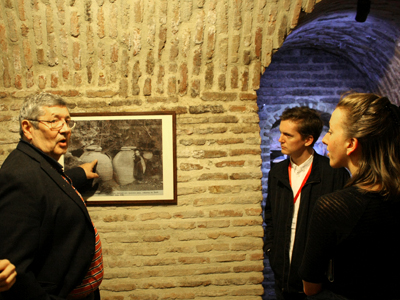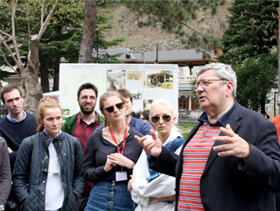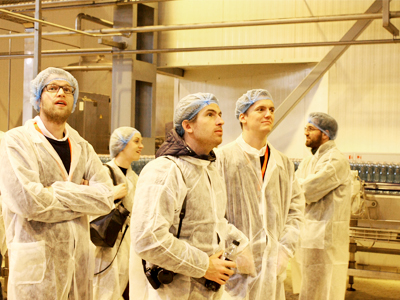Borjomi was the final stop and the highlight on a four-day anticorruption program ISET organized for students and faculty of its partner university, the Norwegian School of Economics (NHH) in Bergen. The tour was hosted by Borjomi LTD, producer of Georgia’s most famous mineral water – the “Coca Cola of the Soviet Union”, in the words of Jacques Fleury, the company’s former CEO. Mr. Fleury had personally greeted ISET and NHH participants on Borjomi’s premises.
Held on Saturday, April 9, the visit started with a study tour of Borjomi’s Factory #1, allowing the group to observe the entire bottling process. The factory had recently received a very large investment allowing to greatly expand and fully automate the entire production process. With a capacity of more than 100,000 bottles per hour, today’s Borjomi is selling a very large share of its output in the former USSR market where its water is considered a major premium brand.
According to Mr. Fleury, having been privatized during the most criminal period in Georgia’s history, the company was lying in ruins back in 1996, when it was bought by a group of Georgian and international investors. Mr. Fleury personally presided over the process of rebuilding the company’s physical infrastructure, dealing with the mafia and corrupt judiciary, reestablishing Borjomi as an exclusive Georgian brand, and (literally) destroying counterfeit producers who at some point controlled over 95% of Borjomi market in Moscow and St. Petersburg. Needless to say, the story of Borjomi’s resurrection, as told by Mr. Fleury, is at the same time a story of Georgia’s difficult path to independence and modernity.
After visiting the plant, the delegation had an opportunity to taste the mineral water that is naturally available at Borjomi’s National Park. On the way back, the group stopped at Château Mukhrani for a wine tour and traditional Georgian dinner.
* * *













